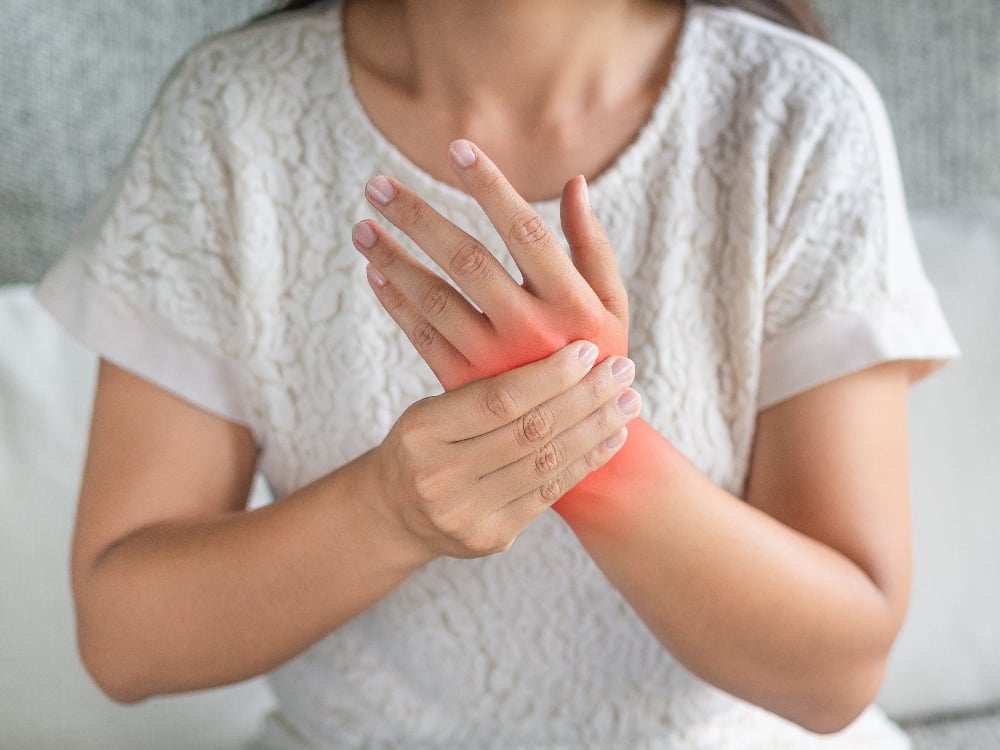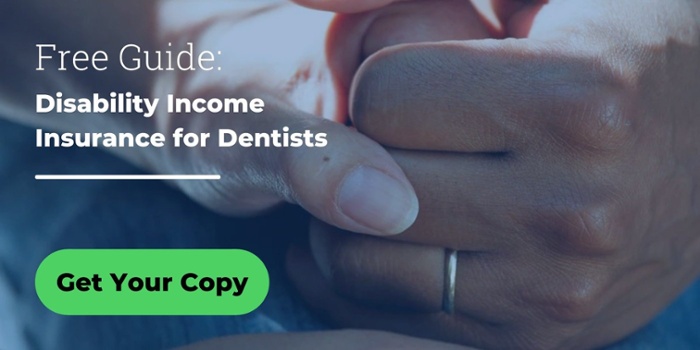Posted by Amy Carbone on Jan 17, 2020 9:00:00 AM
Like many professionals who use their hands excessively in their line of work, dentists are at a higher risk of developing carpal tunnel. Here's how to mitigate it.

Carpal Tunnel Syndrome 101
First, it's important to understand what causes carpal tunnel, what the condition feels like, and what can happen without treatment.
What is Carpal Tunnel?
Carpal tunnel syndrome is a painful, limiting condition that occurs when the median nerve, which is housed in the carpal tunnel and runs from the elbow to the hand on the inside of the forearm, becomes compressed at the wrist.
Signs of Carpal Tunnel
The compression of the nerve often results in:
- Pain or aching in the wrist and hands (this can often interfere with sleep)
- Pain or burning that radiates up the arm towards the elbow
- Weakness in the hands or wrists
- Burning, numbness, or tingling in the fingers (usually the thumb, index, and middle fingers are affected)
Complications
Fortunately, complications as a result of this condition can be rare and management is more for patient discomfort. Atrophy of the wrist and hand muscles may occur if carpal tunnel syndrome is not treated, which can lead to a lack of dexterity. While treatable, in some cases atrophy is permanent and is typically only the result of treatment noncompliance.
Carpal Tunnel Prevention Tips
You can prevent carpal tunnel flare-ups with these useful tips:
1. Wrist Exercises
Pain and inflammation can cause wrists to stiffen and become harder to move, which can exacerbate symptoms in a vicious cycle. Wrist exercises can keep the small joints in your hands well lubricated and flexible, so inflammation is less likely to occur. Try squeezing a rubber ball for a few seconds and release, repeating several times with each hand. You can also flex and stretch your wrists throughout the day to prevent them from getting stiff, but it's important to avoid doing so while you have weight of any kind in your hands.

2. Ergonomic Hand Tools
The tools you hold in your hand every day make a significant impact on carpal tunnel symptoms. Avoid heavy metal-handled tools or tools that are thin and straight, making them difficult to hold. Instead, look for hand instruments that have lightweight silicone or resin handles that are thicker, curved, and easier to fit in your hand. Make sure your dental tools are properly sized for your grip. If your hand starts to hurt after holding the tool for any length of time, you may be ready for an upgrade. In a pinch, you can fit silicone grips over traditional, straight metal handles.
3. Ergonomic Seating
How you sit when working with patients or on the computer can have a surprising impact on your wrists. For example, if your seating isn't ergonomic, it can cause you to hunch your back or otherwise maintain poor posture while you're working. If your back is out of alignment, so is the rest of you, including your neck, shoulders, and wrists. Make sure your dental exam rooms have ergonomic stools that support sitting in a healthy position when treating patients. In your office, use an ergonomic computer chair that allows you to sit with your feet flat on the floor with your shoulders back and your chin at a 90-degree angle.
4. Ergonomic Computer Setup
Even though you spend most of your time with patients, you're still likely spending a fair amount of time in front of your computer. This is especially true for dental professionals who engage in research and writing for various publications. Make sure your computer setup isn't contributing to your carpal tunnel pain. Your keyboard should be ergonomic and support a natural wrist position. Use gel wrist pads for your keyboard and mouse, and invest in a "vertical mouse." This type of mouse keeps the hand in line with the wrist instead of causing the hand to bend up, which compresses the median nerve.

5. Manage Existing Health Conditions
Existing health conditions that impact your body's inflammatory response can worsen carpal tunnel symptoms like burning, tingling and numbness, and aching. These conditions can include but are not limited to diabetes, cancer, obesity, rheumatoid arthritis, and other autoimmune diseases. Work with your doctor to control your inflammatory response and discuss at-home management. Keeping blood sugar under control, for example, may be an excellent way to manage diabetes-related inflammation. Your doctor may prescribe medications to help you reduce inflammation, either short or long-term. Anti-inflammatory drugs can be helpful, but do have side effects that should be discussed with your physician prior to regular use.
Dealing with Carpal Tunnel Pain? Give Your Wrists the Support They Need Off the Clock
Carpal tunnel pain can make it difficult for you to perform your job as a dental professional. While wearing wrist supports at work is next to impossible with the sterile nature of the job, you can wear them when you're not working to provide your wrists with extra support. Supporting your wrists can not only reduce the pain and inflammation associated with carpal tunnel syndrome, it can also prevent flare-ups from getting severe when your wrists start to ache.
What's the worst-case scenario for carpal tunnel? It varies by dentist, but it's always good to know your options in the event you need them. That's why we recommend you download a free copy of our guide to understanding disability income insurance.
Download your copy now!
About Treloar & Heisel
Treloar & Heisel is a premier financial services provider to dental and medical professionals across the country. We assist thousands of clients from residency to practice and through retirement with a comprehensive suite of financial services, custom-tailored advice, and a strong national network focused on delivering the highest level of service.
Treloar & Heisel and Treloar & Heisel Property and Casualty are divisions of Treloar & Heisel, LLC.
Insurance products offered through Treloar & Heisel, LLC.
Treloar & Heisel, LLC. and its divisions do not offer medical advice. Please consult a professional concerning this topic.


